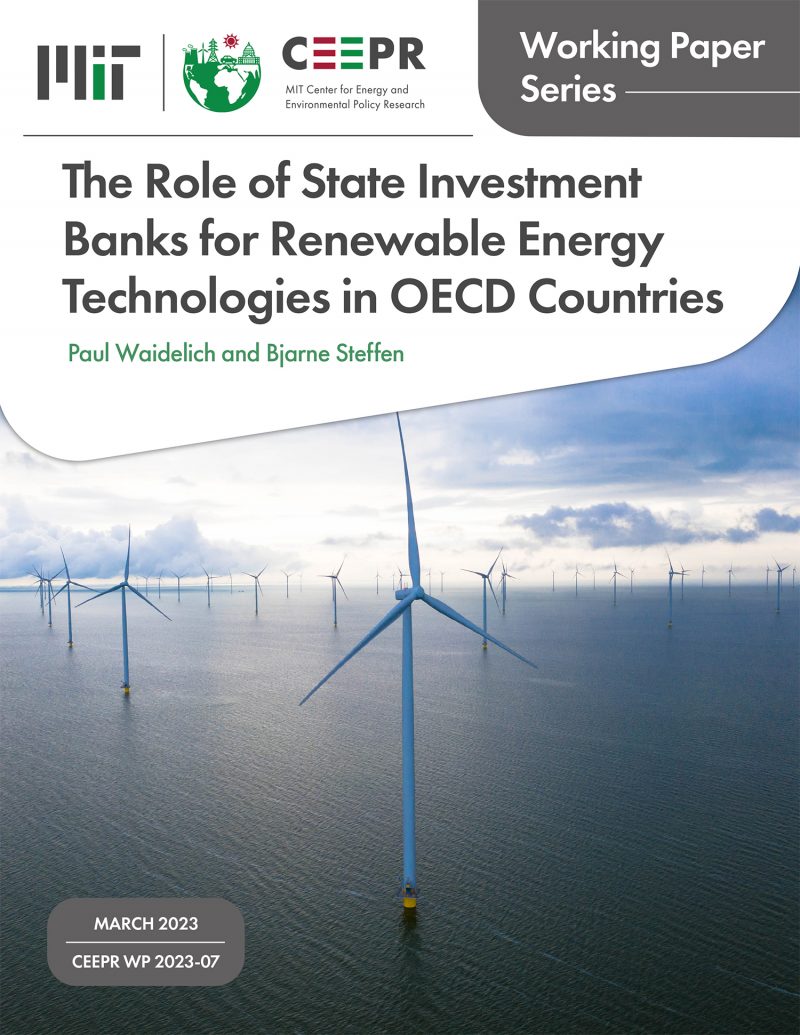The Role of State Investment Banks for Renewable Energy Technologies in OECD Countries
Paul Waidelich and Bjarne Steffen
March 2023
To mitigate climate change, governments use various policy instruments to support low-carbon technologies. In many cases, state investment banks (SIBs) providing financing for renewable energy investments are part of the policy strategy. However, while the energy policy literature suggests that SIBs can absorb investment risks related to new technologies, mobilize private capital, and enable smaller-scale projects, it remains unclear whether their actual financing behavior is aligned with these expectations. Therefore, this paper assesses the predictors of SIB involvement in renewable energy financing deals in OECD countries by estimating a fixed-effects logit model for N = 4, 999 transactions from 2004–2021. Our results indicate that the involvement of SIBs in a deal is significantly more likely for higher-risk technologies like offshore wind or biomass, and, in the case of solar photovoltaics, becomes less likely as domestic markets for the technology mature. For the first projects using a novel technology in a country, however, we find no evidence of higher SIB involvement, in contrast to other public sector lenders. In addition, SIB financing is less likely for smaller renewable energy deals, contrary to the literature’s suggestions. We conclude by discussing the implications for policymakers regarding the use of SIBs to complement other climate policy instruments, for example with respect to mandates and guidelines for such institutions.
Keywords: Clean energy, de-risking, public finance, energy policy, state-owned banks
JEL Codes: G21, H81, Q48, Q55



